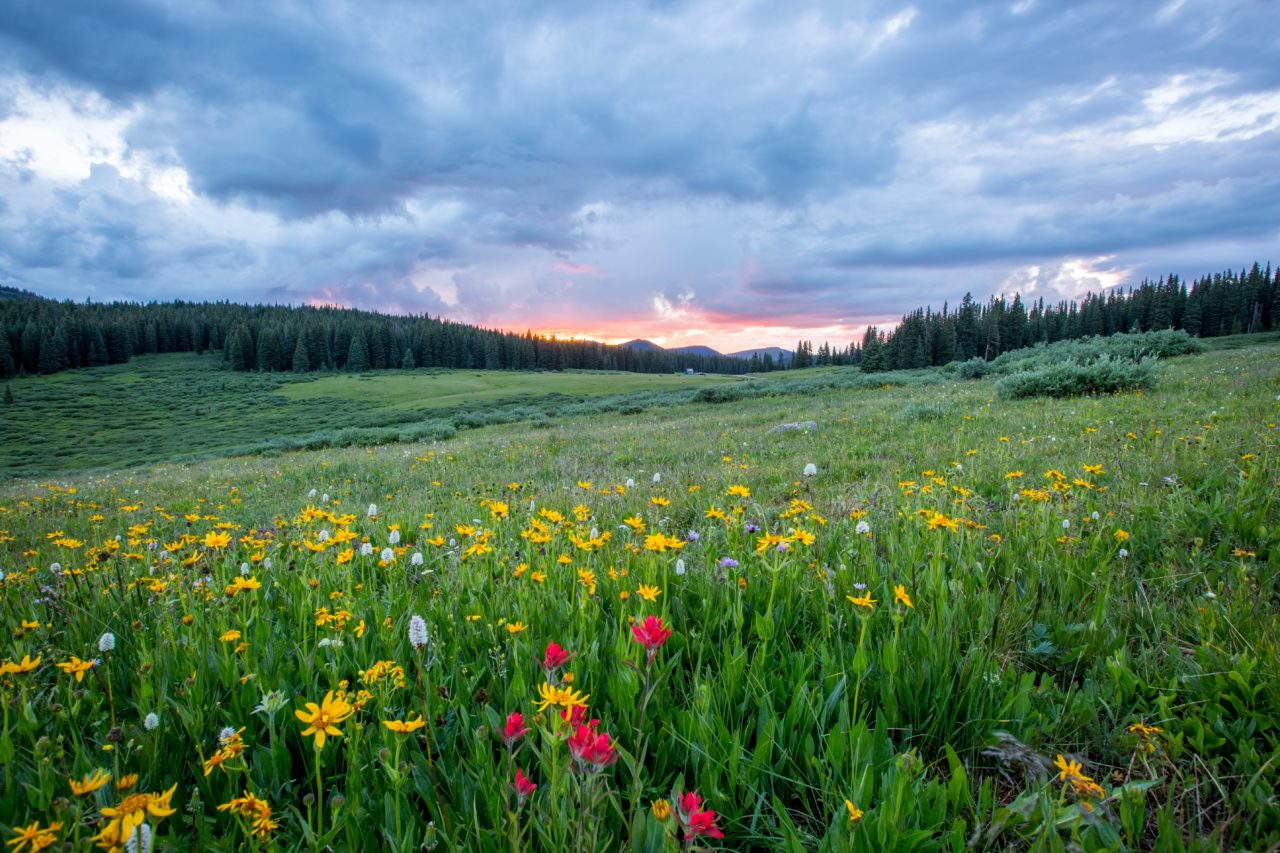Whether you’re a conservationist, birdwatcher, or simply a human who wants to ensure that our ecosystem won’t entirely collapse, there are endless reasons to transform your backyard into a pollinator paradise. It is an investment in our collective future, and a harmonious aesthetic that has the potential to balance your mood while providing environmental benefits that reverberate far beyond property lines. Pollinators are literally the reason that plants grow, so there is also something wonderfully reciprocal about planting for pollinators.
In addition to hummingbirds, the pollinator kingdom includes butterflies, bees, flies, beetles, bats and even small native mammals. As with most of the natural world, diversity is the name of the game; habitats welcoming to a variety of native flora and fauna make the most successful havens.
9 Actions That Foster Healthy Habitat For Pollinators
-
Do less.
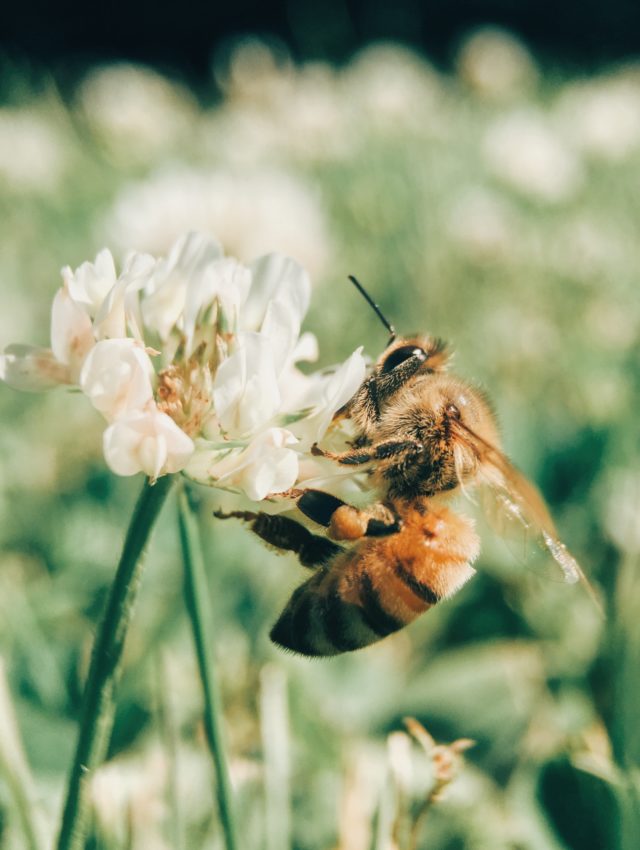 Fallen leaves and decomposing materials that may seem unsightly to humans provide essential habitat to pollinator larvae. Limiting lawn & garden “clean up” is an easy way to support the local ecosystem and fortify your pollinator paradise. Don’t snip away the seedpods of native plants in the summertime, and consider leaving at least some leaves on the ground in the autumn. In springtime, wait until temperatures stay consistently freezing before raking out garden beds and clearing away brush.
Fallen leaves and decomposing materials that may seem unsightly to humans provide essential habitat to pollinator larvae. Limiting lawn & garden “clean up” is an easy way to support the local ecosystem and fortify your pollinator paradise. Don’t snip away the seedpods of native plants in the summertime, and consider leaving at least some leaves on the ground in the autumn. In springtime, wait until temperatures stay consistently freezing before raking out garden beds and clearing away brush. -
Let the grass (& weeds & wildflowers) grow!
No Mow May encourages participants to refrain from cutting their lawns until June, to create backyard habitat for pollinators. Participating has the added benefit of freeing up resources––time, money, or fuel––that would otherwise go towards lawn maintenance.
-
Remove invasive plants & nurture natives species.
Native plants are both food and habitat for pollinators. If you need more reasons to pick native plants over invasive species, here’s one: native species are the foundation of any pollinator garden!
-
Plan for ongoing blooms & diversify your garden!
Nurturing a diverse range of native species supports pollinators. Make sure that something is in bloom from early spring through late fall. This ensures your pollinator neighbors have continual food sources and––equally as important––nutritional diversity.
-
Bring in the bee balm!
Pollinators LOVE Bee Balm. Despite their arthropod namesakes, bee balm is just as popular––if not more so––with hummingbirds! In our experience, it offers an extremely high ratio of hummingbird-sightings. A word of advise: plant it where abundant growth is welcome. Though Bee Balm is a native plant and therefore not technically invasive, is an aggressive grower. Under the right conditions, it will happily spread!
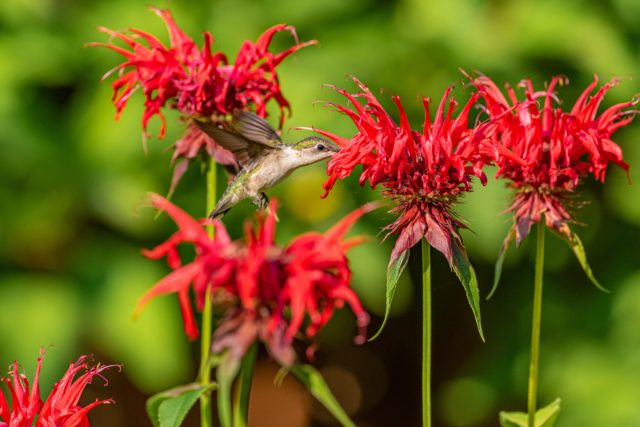
-
Avoid chemicals.
Lawn and garden chemicals aren’t as discriminating as the companies that sell them want you to believe. You can’t kill just one species without negatively affecting many many more, whether by direct poisoning or via a ripple-effect in interdependent species. Organic is the name of the game!
-
Manifest milkweed meadows!
Some native species, such as the Monarch Butterfly, only eat milkweed. They are subsequently in serious danger when meadows are decimated for parking lots or construction projects. If you have good conditions for milkweed on your land, consider planting some and nurturing any that is already present.
-
Host a pollinator “hotel.”
With limited habitat for bees and other pollinators to la
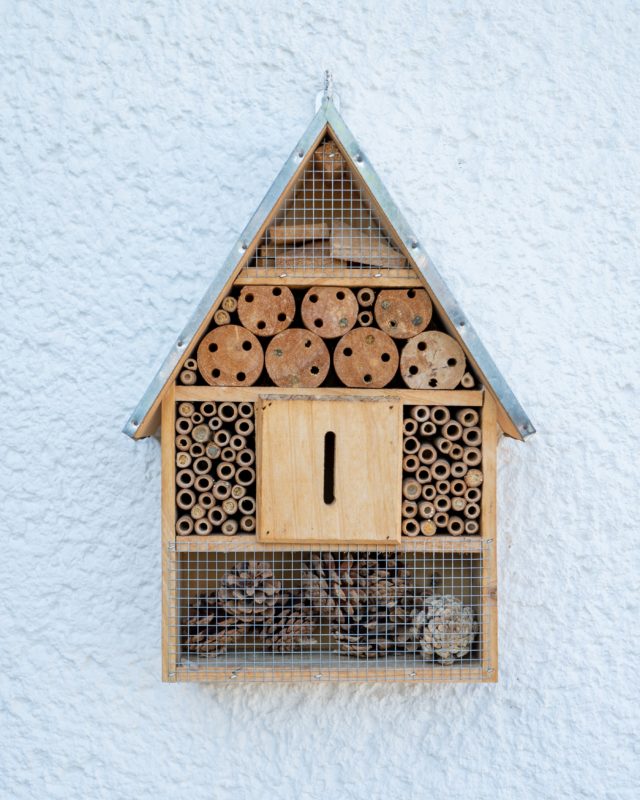 y their eggs, building a safe haven is extremely beneficial. It’s a fun and educational project for families with kids so we recommend the DIY version, but you can also buy pre-made ones from your local garden shop or craftsperson.
y their eggs, building a safe haven is extremely beneficial. It’s a fun and educational project for families with kids so we recommend the DIY version, but you can also buy pre-made ones from your local garden shop or craftsperson. -
“Bee” a hero!
By now most of us are aware of the plight, and the necessity, of bees. As someone with access to a garden, you can support the cause by taking up beekeeping or offering a place for a local beekeeper to house some hives. Reach out to your local beekeeping organizations to connect with experienced apiarists.There are also services that match landowners & beekeepers searching of a home for their hives.
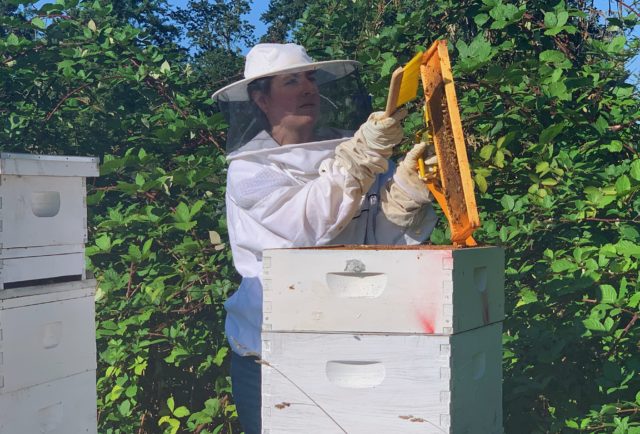
At NatureWorks Land Care, we are committed to stewardship of the Earth and our local ecosystems. That means using organic, sustainable practices, working with native plants, and supporting our local pollinators. Would you like help fostering a hummingbird haven, pollinator paradise, or Monarch meadow? Contact us.


